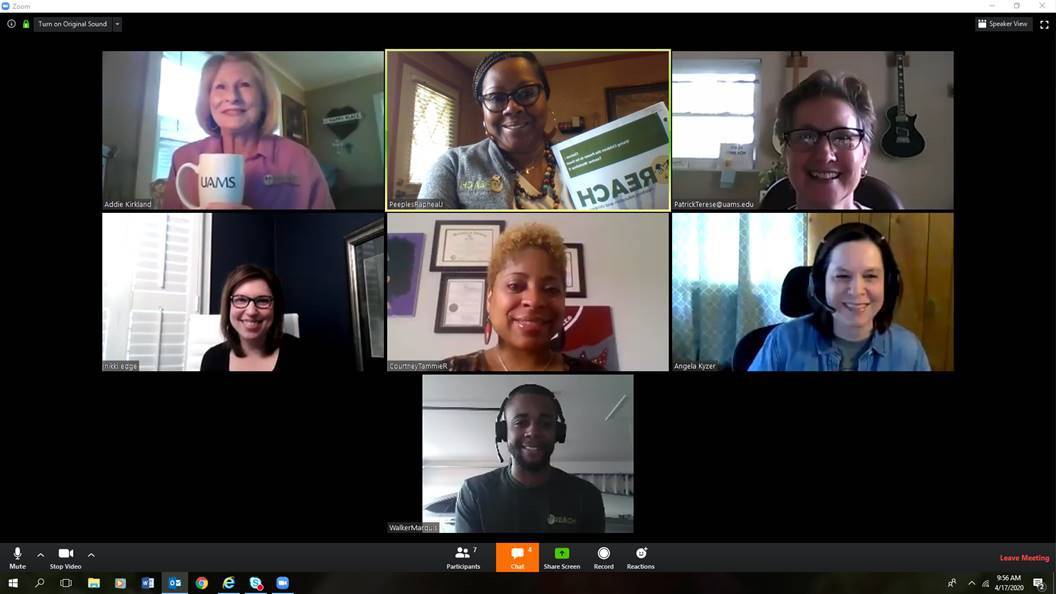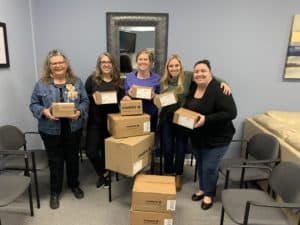By Amy Widner
 COVID-19 really made Alexa Martin, M.D., a third-year resident in the Department of Family and Preventive Medicine, see the “big picture.”
COVID-19 really made Alexa Martin, M.D., a third-year resident in the Department of Family and Preventive Medicine, see the “big picture.”
Thankfully, the last six months have also made her feel like she can tackle it, because of leadership experiences and educational opportunities she couldn’t have imagined before.
“I think I was always interested in the big picture, but sometimes as a med student and resident you’re so focused on learning that you can get task-oriented – focusing on one skill at a time, one patient at a time,” Martin said. “The COVID-19 pandemic really reminded me of the big picture of what medicine is all about – improving human health.”
Martin received the highly competitive and prestigious travel award from the National Institutes of Health and the National Medical Association to attend the NMA’s 2020 annual Convention and Scientific Assembly, which was held virtually in August.
She was recommended for the award because of the leadership role she held with UAMS’ drive-thru COVID-19 screening and testing triage that sprang up quickly in the early days of the pandemic’s impact on Arkansas.
“When the triage was only a few days old, they started pulling some of the residents in to help,” Martin said. “I did my first shift, and I did a good job at it and didn’t complain too much while I was sweating under my PPE. When it was time to go, my replacement didn’t show up, so I stayed on, and they were like, ‘hey, you’re good at this, can you train the next shift?’ So I did, and that’s how it all started.”
Martin ended up as a physician lead, training others who volunteered or were assigned to help. She spent all her spare time reading up on the latest on the disease. She and a few other residents turned out to have a knack for understanding systems and workflow, so when it came time to identify gaps and make improvements, she gave valuable feedback.
She was one of the staff members who suggested that the Family Medicine Clinic create a special clinic dedicated to acute respiratory illnesses so that patients who didn’t need hospitalization could still get valuable care in a time when fears were high but hospital beds were scarce. She also participated in the first mobile triage unit to take the skills of UAMS across the state. Their first stop was Helena.
“It was really good experience to see how quickly we could make changes and come up with solutions,” Martin said. “More than once since then in the hospital I’ve run into professors who under any other circumstances would outrank me, and they’ll say, ‘hey, you were the one that trained me my first day at triage!’ It’s humbling, but also empowering to have an experience as a resident where you see that you can really step into a leadership role and make a difference.”
It was through the COVID-19 triage that Martin met Gloria Richard-Davis, M.D., executive director of the Division of Diversity, Equity and Inclusion at UAMS, who recommended she apply for the NIH travel award, which would have covered travel and expenses for the weeklong conference if it had been held in person.
Although the conference was held online, Martin said she still benefitted from learning about the opportunities the NIH offers for early-career physicians who are interested in research or academics. The award came with the title of 2020 academic medicine fellow, and Martin was featured in the conference program under that header and was able to do plenty of networking – even virtually – because of the prestigious distinction.
“I met so many people and learned so much,” Martin said. “I didn’t know there were so many avenues for research and funding to help with loan repayment. It was great to see all of these avenues that I didn’t know about.
“The COVID-19 pandemic had already made me start thinking about whether I should pursue a master’s in public health and go into issues dealing with community and population health, maybe getting involved with state or federal health offices or the Surgeon General’s office – places where you can practice medicine but also be involved in policymaking. This travel grant and fellowship helped me see what the next steps on that path might be.”





